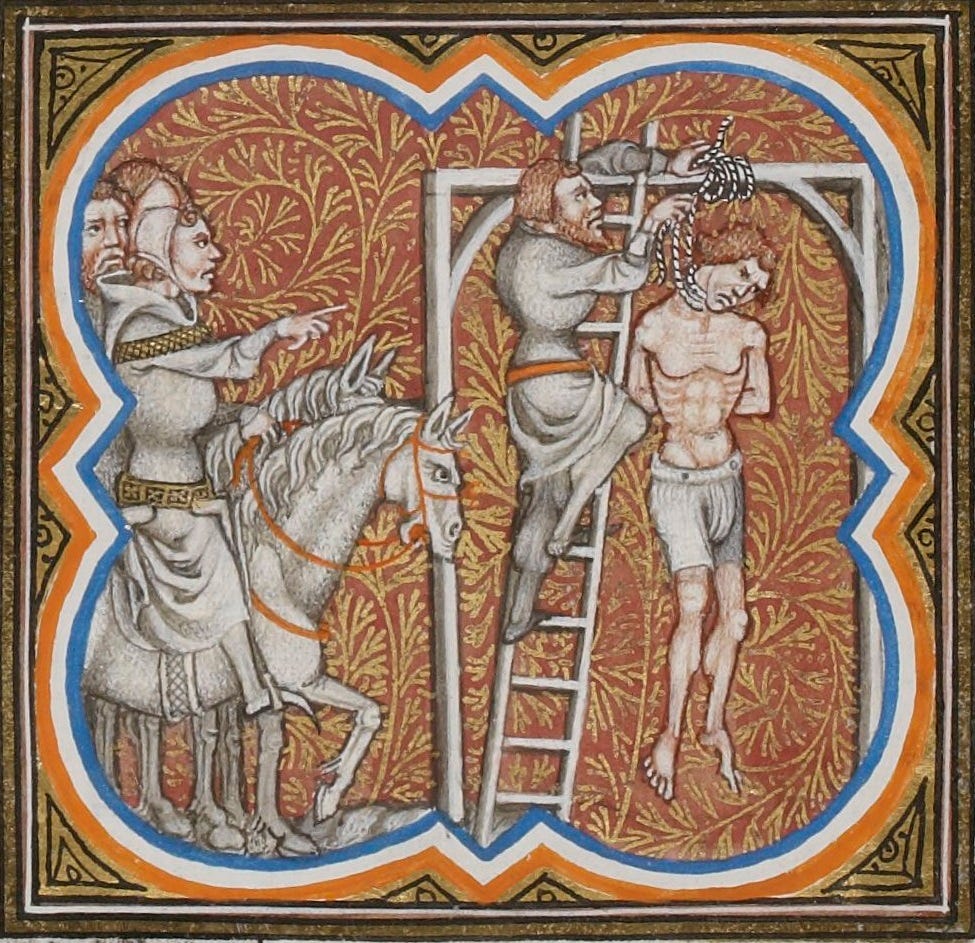The Problem of Robber Knights and the Disturbers of Peace: Thomas of Marle
King of the Franks Louis VI spent much of his reign (1108-1137) dealing with robber knights and trying to establish royal authority. Thomas of Marle was the great villain of this period.
The emergence of the ideals of chivalry and crusades in the West is a phenomenon best understood when examining the chaos that existed in the decades leading to the First Crusade, as well as the decades afterwards. Namely the breakdown of order and collapse of royal authority in 10th century France which greatly upset the hierarchy of the Catholic Church.
Of course when speaking about “France” at this time we’re referring to the Western part of the former Frankish Empire, the latter being divided into three parts since 843, from which the Kingdom of France would eventually emerge. The breakdown of central authority in what is known as West Francia resulted in degeneration into many small countries and lordships. As the authority of the King of West Francia was shrinking, independent duchies emerged such as Burgundy, Aquitaine, Brittany, Gascony, Normandy, Champagne and the County of Flanders. The authority of the King was largely limited to Ile de France. The Capetian dynasty, which would come to power in 987, would eventually reverse this process, but it would take a long time and much effort. The actual emergence of France would come during the reign of Philip II Augustus (1180-1223). He was also the first to style himself as King of France (rex Franciae), whereas his predecessors were style as King of the Franks (rex Francorum). This change was not only symbolical but also reflected the shift towards king being perceived as tribal rulers towards ruling a specific set of territory.
The reason why Philip II Augustus was so important for history of France, and the very formation of France as a centralized kingdom and the grand power of Europe into which it would eventually grow, is because he spread the territory of the royal demesne, the territory directly under control of the King. By the end of his reign, large parts of France would be part of this royal demesne, and this would be the base from which the power and centralized authority of the French monarch would increase in the subsequent centuries. The phrase Kingdom of France (Regnum Franciae) was first recorded in such political context in 1205.
In this article we are therefore going back to the period before we can talk about France as we know it, but when important steps were taken that such France would come about. For this was a gradual process and many steps had to be take to pave the way for Philip II and his consolidation of royal power.
During this time, the problem was not just the political fragmentation but the emergence of marauding knights and “robber barons” who would terrorize the population as there was no one to impose order. Such problems would have widespread consequences not just for France but for wider Europe, as in order to tackle them, the ideals of chivalry would eventually arose, a set of ideals of how Christian knights should behave. The Catholic Church was particularly invested in this, as the churches and abbeys were frequently targeted by marauders. To impose order was no easy task, as these troublesome knights were protected by their castles from which they could plunder the land without facing reprisals.
Louis VI, who ruled as the King of the Franks from 1108 to 1137, was one of the men who took action against the said marauding knights and would earn great praise by the clergy for this. The famed Abbot Suger of Saint Denis (1081-1151) wrote a biography of Louis VI, known as The Deeds of Louis the Fat. In this biography he praised the deeds of Louis VI as the model of a Christian warrior king who protects his realm from the criminals and trouble-makers, answering their prayers “for the protection of the churches and the poor.” Louis gained the epithet “the Fat” in later period of his life where he struggled with being overweight, experiencing a weakness of body. But earlier in his life he was primarily known as “the Fighter”, a warrior-king who personally led campaigns against the problematic robber knights, a king “who does not carry his sword in vain.” The great villain of this story, as written down by Suger, was Thomas of Marle, described as “the most accursed man” who ravaged the countryside “like a wolf gone mad”, aided by the devil.
Hanging of the supporters of Thomas de Marle. Dealing with marauding knights became one of the main concerns of the reign of Louis VI.
I would like to share with you the passages from the Suger’s chronicle that deal with Thomas of Marle and how King Louis VI waged campaigns against this problematic person.


